You have to reduce carbs or increase the protein and decrease starch amounts in your daily meal.
These are knowledge that you will often be advised by sports experts when you begin to enter the exercise regimen to lose weight and lose weight in general.
When these tips are generated, it is due to a hormone called insulin in our body, which is produced when we load nutrients into the body.
And so, most people blame our fat storage and weight gain as caused by the insulin agent. Is this true, and what does insulin actually work?
Whether you gain weight or lose weight, whether you lose belly fat or not depends too much on insulin or another factor.
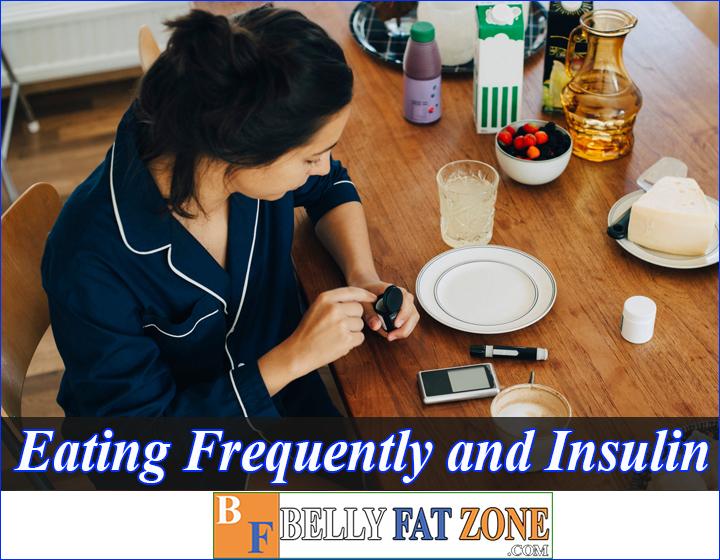
Or even cause type 2 diabetes.
- So what exactly is insulin?
- And how do they work in our bodies?
- Is insulin really as harmful as the rumors say?
This article will learn about insulin and its mechanism of action and how often eating affects whether insulin increases or decreases.
What is insulin?
Insulin is a hormone produced (secreted) and released into the bloodstream by the pancreas, a gland located behind our stomach. Insulin allows your body to use glucose for energy.
In case you do not know glucose, please refer to BellyFatZone's article glucose. Essentially, insulin is a protein. The pancreas produces them…
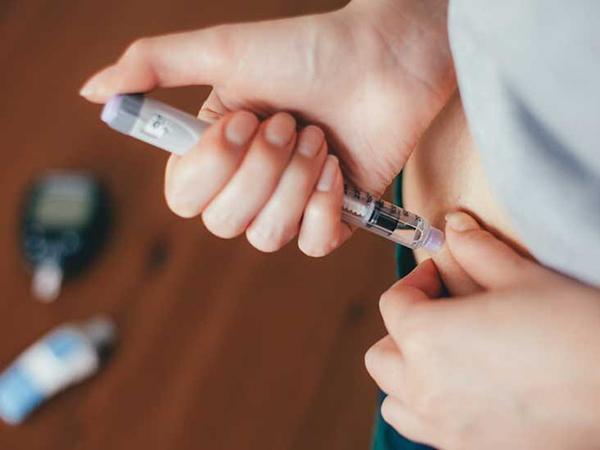
And release it whenever you eat carbs, protein, or both (if the pancreas is working properly). However, unlike other proteins that act as the physical building block (unit) of muscle …
Insulin is a functional protein, like the growth hormone GH. Like all proteins, insulin is structured as a chain of amino acids that are chained together.
However, since these amino acids' structure is folded, they act more like a signaling mechanism than a building block. Please refer to the article What is BellyFatZone's amino acid if you do not know about amino.
How insulin works
The main role of the hormone insulin is to regulate the number of nutrients circulating in our bloodstream. However, insulin is mainly involved in blood sugar management.
However, they also affect fat and protein metabolism. After a main meal or snack, the amount of food we consume will be broken down into basic nutrients.
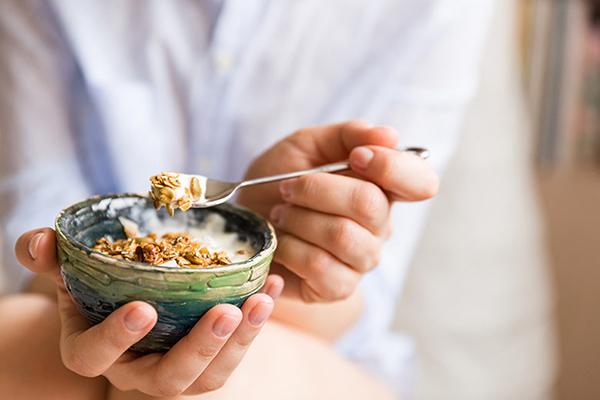
Specifically, proteins will be broken down into amino acids. Fat will be broken down into fatty acids. The carbohydrates are broken down into glucose. Once resolved, the basic nutrients will be …
Absorbed into blood vessels through the lining of the small intestine. And once in the blood vessels, concentrations of these nutrients begin to rise, and they need to be moved into muscle and fat cells for use or storage.
And this is where the hormone insulin comes into play as blood levels of nutrients increase; cells in the pancreas sense this increase and release insulin into the bloodstream.
Starting from the pancreas, insulin travels down the bloodstream and travels to the body's tissues. The cells in our bodies are covered with insulin receptors (insulin receptors).
And when insulin molecules “land” on the insulin receptors, this signals transporters to transport nutrients into cells (e.g., muscle cells or fat cells).
In a nutshell, when insulin hormones come into contact with the cell, they “command” to open the cell membrane (open the door) and allow the cell to take over (absorb) nutrients.
As nutrients are slowly absorbed into cells, the concentration of insulin in the blood decreases. And after all the nutrients are absorbed (glucose, amino acids in the blood decrease) …
Then the insulin concentration will also return to the original starting level and remain stable at this threshold. This cycle happens every time we consume food. Then amino acids, fatty acids, or glucose will find sugar in the blood …
And wait for the insulin to rise to move into the cell. After the job is done, the insulin levels drop to the “normal” threshold, and the pancreas continues to wait for us to replenish food to repeat the process.
Read more: Carbs? How Many Carbs Do Bodybuilders Eat a Day?
Legend of insulin
Through the information above, we can see that insulin is an important hormone. And we cannot live without it, especially with gyms and bodybuilders.
So why are some opinions suggesting that insulin causes us to store fat and get sick? This is because one of the important insulin roles in the body is related to fat storage.

The job of insulin, in this case, is to interfere with the breakdown of fat cells while also stimulating the formation of body fat. When this happens, the insulin signals the body to stop burning stored fat.
And instead, the body absorbs fatty acids and glucose from the blood to convert them into fat. For this reason, insulin and carbs often have a bad reputation. It is often argued that eating a lot of carbs results in high insulin levels.
Thereby causing reduced fat burning, increased fat accumulation, and then leading to more and more body fat. And to overcome the above hypothesis, they believe that eating low-carb will help maintain low insulin levels.
Thereby helping to increase fat burning, reduce excess fat accumulation. The result is a lean, toned body. At first glance, the above arguments seem correct. However, those are just inaccurate legends.
Insulin can make us obese?
One of the most common allegations about carbs and insulin is this: eating many carbs every day will keep the insulin high. And what is supposed to make us gain weight?

Because at this time, the body is in a state of fat storage, not in the state of burning fat. However, this is just a legend. The truth is that insulin causes fat cells to increase because they absorb fatty acids and glucose.
But this will not make you fatter. Fat gain or fat loss depends mainly on the energy balance mechanism.
Energy balance here means the ratio between the amount of energy (calories) you burn and the amount of energy you get through food.
If you take in more calories than you burn, the extra calories (energy) are stored as fat and cause weight gain. Conversely, if you consume fewer calories than you burn …
Then the body will take stored fat to do energy work, and from there, they will help you lose weight. When we eat and digest food (satiety), the body goes into a fat-storage mode.
On the contrary, when the body finishes absorbing glucose and nutrients from food (in a state of hunger), the body will switch to fat-burning mode, “fat-burning mode.” In a day, our body will alternate many times between two states of fullness and hunger.
Now, if fullness and hunger are balanced, your weight will be maintained. Because the fat stored will be equivalent to the amount of fat burned. On the other hand, if the state is more full than the starved state (due to overeating, prolonged absorption / fat storage mode), you will accumulate fat.
If the state of hunger is more, then you will burn more fat than you store fat, thereby helping you to be leaner and firmer. These principles are also the underlying mechanism for fat storage and fat loss.
It doesn't matter how many carbs you eat or how much insulin you eat during the day. And it is called the First law of thermodynamics.
In short, fat stores will only increase if you give your body excess energy. And they will only decrease if you create a deficit. Research has also shown that eating just a few calories (energy) less than calories burned …
Everyone on a high-carb or low-carb diet can lose fat equally. That is also why Professor Mark Haub can lose 27 pounds (12.2 kg) on an all-carb diet.
The professor's main food sources include: Twinkies and Little Debbie cakes, Doritos chips, and Oreo cookies … To achieve this amazing result, Mark Haub just did one straightforward thing.
That is, maintenance of calories (energy) intake is lower than calories burned. In conclusion, the insulin concentration or the amount of carbs consumed has a minimal impact on weight gain or weight loss; energy balance is the most important mechanism.
Is insulin the only factor causing fat storage?
As mentioned above, insulin causes fat cells to absorb glucose and fatty acids. Not only that, but another cause of insulin is alleged to be the cause of weight gain.
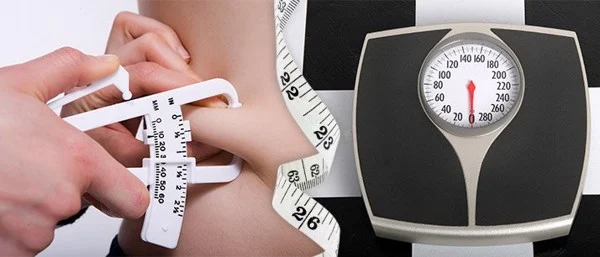
Our fat cells contain an enzyme called hormone-sensitive lipase (HSL). This enzyme works to break down body fat (body fat) into fatty acids for burning. And insulin inhibits the ability of the enzyme HSL to work.
For this reason, insulin is once again thought to cause weight gain. However, most people ignore a fact. That is, eating fat can also inhibit HSL, not just insulin.
And thanks to the enzyme “acylation stimulating protein,” our bodies don't need high levels of insulin to convert fat from food into body fat. This is why you cannot eat a lot of fat if you want to lose weight.
Research has also shown that the separation of carbs and fats (fats) does not affect weight loss. In other words, eating carbs and fats or separating them will not affect weight.
Again, the energy balance mechanism is the key. As long as you consume more calories than you burn, you will gain weight, whether those calories come from protein, carbohydrates, or fat.
Does protein increase insulin?
According to research, a meal high in protein and low in carbs can cause the body to release more insulin than a high-carb meal. Not only that, in a study by Lund University in Sweden, it was done on whey protein.
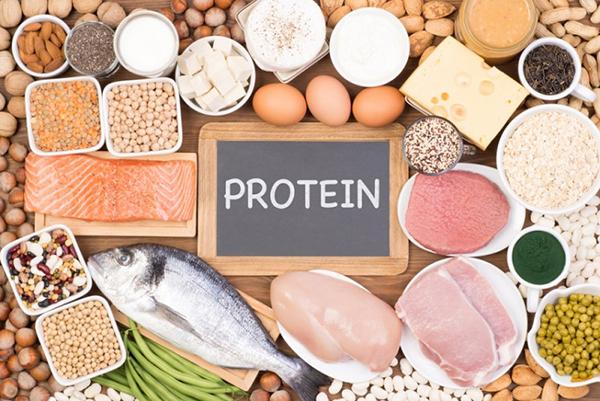
The study results showed that whey protein was more likely to stimulate insulin production than white bread. Not only that, but beef consumption also stimulates the production of more insulin than brown rice.
Protein's effect on insulin levels is quite similar to that of carbs. When we load protein, insulin levels quickly rise, then fall quickly. But they do not remain at a stable level and last long.
Read more: High Protein Diet Plan For Muscle Gain And Budget-friendly.
Insulin can stimulate hunger?
In addition to the legend of the ability to store fat, insulin also has another legend: the ability to stimulate hunger. However, this legend has been rejected by a study of the University of Leipzig (Germany).
Not only that, but another study has also demonstrated that the higher the insulin concentration of a meal, the more full you will feel.
Besides, a study from the University of Leeds (UK) showed that high-carb meals create more satiety than a high-fat meal.
Does insulin help build muscle?
Although insulin does not directly stimulate protein synthesis like some amino acids, research has demonstrated that they are anti-catabolic. In other words, as insulin levels go up, the level of muscle protein breakdown (breakdown) is decreased.

As such, this will create an anabolic environment, which in turn helps muscles grow faster. Many studies have concluded that a high-carb diet is much more beneficial than a low-carb diet for muscle building and strength.
Not only that, but researchers at Ball State University (USA) also found that: low levels of muscle glycogen (which is certain when a limited carb intake) weakens the following cell signals. Post-workout cell signaling is related to muscle growth.
In a study conducted by the University of North Carolina, researchers found that a low-carb diet increases resting cortisol levels and lowers free levels when combined with daily exercise. Testosterone.
In case you do not know what cortisol is, it is a hormone that breaks down tissues in the body, including muscle tissue. From a muscle development perspective, cortisol is a harmful hormone, and we need to keep it low.
The studies above have contributed to explaining the discoveries about low-carb diets in several other studies. For example, in a study by the University of Rhode Island …
Scientists conducted to examine how high-carb and low-carb intake affects exercise. The factors assessed include the degree of muscle destruction, strength recovery, and the ability to metabolize protein after a heavy workout.
This study showed that the group with the low-carb diets (226 grams per day vs. 353 grams) lost more strength, recovered more slowly, and had lower levels of protein synthesis compared to the group that ate—lots of carbs.
Not only that, in a study at McMaster University, people compared a high-carb and low-carb diet when doing leg sessions. The results of this study show …
The low-carb group had a higher level of protein breakdown (breakdown), lower protein synthesis, and worse muscle growth than the high-carb group.
Eating Carbohydrates The Sugar and Insulin Dynamic Video
View more:
- Benefits of Fish Oil Capsules for Gym – You Should Know To Avoid Mistake In Use
- Is Coffee Good to Lose Belly Fat? How to Use it Effectively and Safely?
- Whey Protein Recipes Shakes – Help You Always Find Strange Delicious
Hopefully, the information above has helped you gain some more knowledge about “eating frequently and insulin” and bringing some small value to you. Please share this article if you feel it is useful. Thanks!






